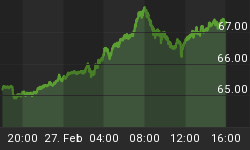"Crony capitalism" is a term often applied to foreign nations where government interference circumvents market forces. The practice is widely associated with tin-pot dictators and second-rate economies. In such a system, support for the ruling regime is the best and only path to economic success. Who you know supersedes what you know, and favoritism trumps the rule of law. Unfortunately, this week's events demonstrate that the phrase now more aptly describes our own country.
On Monday, the Supreme Court refused to hear an appeal from Chrysler's secured creditors based on the government's argument that the needs of other stakeholders outweighed those of a few creditors. In this case, the Administration concluded the interests of the United Auto Workers outweighed the interests of the Indiana teachers and firemen whose pension fund sued to block the restructuring. Given the enormous financial support that the UAW poured into the Obama campaign, such partiality is hardly surprising.
When making their investment in Chrysler just a few months ago, the Indiana pension fund agreed to commit capital because of the specific assurances received from the company. In allowing this sham bankruptcy to be crammed through the courts, we have shredded the vital principal of the rule of law, and have become a nation of men, rather than one of laws.
The risk that legal contracts can now be arbitrarily set aside will make investors think twice before committing capital to distressed corporations. Oftentimes enforcing contracts imposes hardships. That's precisely why we have contracts.
Without absolute faith that deals will be honored, it will be extremely difficult for U.S. companies to borrow money. This will be particularly true for those companies already struggling with too much debt. Without the ability to issue secured debt, how will such companies access the necessary capital to turn around? If secured creditors cannot count on the courts to enforce their claims, they will not put their capital at risk. What good is being a secured creditor if courts can allow the assets securing your claim to be sold for the benefit of others?
Another problem with the government imposing losses on secured Chrysler creditors is that in its bailouts of financial companies (like Citigroup and AIG), the government took steps to specifically pay back creditors, even when those creditors should have been wiped out. This inconsistency and lack of equal protection further undermines faith in our economy.
The message here is clear: loan money to financial entities with friends in Washington and no matter how risky the loan, taxpayers will bail you out if it goes bad. However, loan money to a unionized manufacturer, even if prudently secured by real assets, and you have as much chance of getting your money back as finding Jimmy Hoffa's body.
As if this wasn't bad enough, testimony on Thursday from former Bank of America CEO Ken Lewis revealed a concerted effort on the part of Fed Chairman Ben Bernanke and former Treasury Secretary Henry Paulson to pressure Lewis into hiding relevant financial information regarding Merrill Lynch losses from B of A shareholders. Recently released e-mails make it clear that the government threatened to remove corporate leaders if they failed to go through with the merger and keep quiet about the losses.
Again, the justification for the interference seemed to be the "greater economic good" the merger would serve. The right of B of A shareholders to be informed that their company was about to buy a financial black hole was clearly considered to be an acceptable sacrifice.
More importantly, the fact that two of the highest-ranking government officials can conspire to violate both securities laws and private property rights is abhorrent to everything America supposedly stands for. If they get away with it, which I believe they will, the precedent and the message will be chilling.
As a broker who specializes in foreign investments, I am always wary of political risk. I must consider how the threat of arbitrary government action could undermine the value of my investments. However, recent events show that political risk is now greater here than abroad, and U.S. assets, which have historically traded at premium valuations based on faith in our legal system, will soon trade at discounts to reflect this new threat. The fear of having contracts abrogated or property rights violated when doing so serves some contrived greater good will substantially raise our cost of capital and further reduce our competitiveness.
For a more in depth analysis of our financial problems and the inherent dangers they pose for the U.S. economy and U.S. dollar, read my just released book "The Little Book of Bull Moves in Bear Markets." Click here to order your copy now.
For a look back at how I predicted our current problems read my 2007 bestseller "Crash Proof: How to Profit from the Coming Economic Collapse." Click here to order a copy today.
More importantly, don't wait for reality to set in. Protect your wealth and preserve your purchasing power before it's too late. Discover the best way to buy gold at www.goldyoucanfold.com. Download Euro Pacific's free Special Report, "Peter Schiff's Five Favorite Investment Choices for the Next Five Years", at http://www.europac.net/reports.asp. Subscribe to our free, on-line investment newsletter, "The Global Investor" at http://www.europac.net/newsletter/newsletter.asp. And now watch the latest episode of Peter's new video blog, The Schiff Report, at http://www.europac.net/videoblog.asp.















